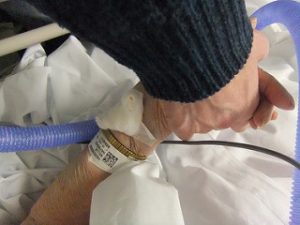Last week, we looked at the recoveries made on behalf of the federal government using the False Claims Act (“FCA”) in 2015. While informative, those numbers don’t tell the whole story. Many states have their own versions of the FCA. These statutes are particularly important in the Medicaid fraud arena since Medicaid is a state and federal partnership so fraud typically involves both federal and state funds. Today, our government fraud law firm looks at one such statute, Washington’s Medicaid Fraud False Claims Act (“WFCA”). Each state’s laws are unique, but this review can help readers understand the importance of state claims in this arena.
Washington’s Legislative Auditor Reviews the State False Claims Act, Recommends Reauthorization
In 2015, with the WFCA set to expire on June 30, 2016, the  state’s Legislative Auditor undertook to study the statute, its results, and recommend or counsel against reauthorization. As the resulting report (Proposed Final Report issued 12/16/15) explains, government can investigate possible Medicaid fraud via federal (civil and/or criminal) investigations, state criminal investigations, and state civil investigations. Absent reauthorization, Washington would lose the authority for the final category. Additionally, if the federal government is investigating a case that also involved fraud on Washington state, the state can only participate in the case and any recovery if it has a state FCA that (like the WFCA) meets certain standards set forth in the federal law.
state’s Legislative Auditor undertook to study the statute, its results, and recommend or counsel against reauthorization. As the resulting report (Proposed Final Report issued 12/16/15) explains, government can investigate possible Medicaid fraud via federal (civil and/or criminal) investigations, state criminal investigations, and state civil investigations. Absent reauthorization, Washington would lose the authority for the final category. Additionally, if the federal government is investigating a case that also involved fraud on Washington state, the state can only participate in the case and any recovery if it has a state FCA that (like the WFCA) meets certain standards set forth in the federal law.
 In January 2018, the California Division of Workers’ Compensation (DWC) suspended 18 medical providers. These providers, many of whom are physicians, can no longer work in the state’s workers’ compensation system due to the loss of their medical license, criminal conduct, or fraud.
In January 2018, the California Division of Workers’ Compensation (DWC) suspended 18 medical providers. These providers, many of whom are physicians, can no longer work in the state’s workers’ compensation system due to the loss of their medical license, criminal conduct, or fraud. Healthcare Fraud Lawyer Blog
Healthcare Fraud Lawyer Blog






